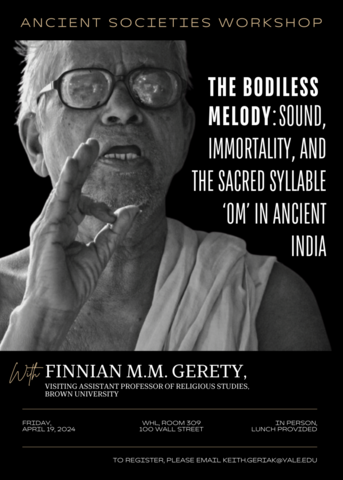Finnian M.M. Gerety
Visiting Assistant Professor of Religious Studies
Brown University
Poster Photo: Master singer Nellikkattu Mammannu Vasudevan Namboothiri, 2012
This talk examines a ghost story from a neglected Vedic work, the Jaiminīya Upaniṣad Brāhmaṇa (ca. 7th cent. BCE), that showcases the use of Sanskrit mantras to attain immortality— with key implications for understanding Vedic traditions, the development of Hindu soteriologies, and the history of the sacred syllable OM. Hunting in the forest, a king encounters the intangible “ghost” of his uncle, who tells him about a secret mantra with the power to shed the body and elevate the spiritual “self” (ātman) to heaven. The king then searches for this “bodiless melody” (aśarīraṃ sāman), ultimately finding it in the most unlikely of places. This story, I argue, evokes several themes central to Vedic traditions: the importance of esoteric knowledge gleaned from supernatural figures in the wilderness; the primacy of immortality as the goal of ritual practice; and the efficacy of sound in transforming body and soul. I suggest that the idea of using OM to leave the body and ascend to liberation, first articulated in this Vedic text in relation to the bodiless melody, decisively influenced the formation of mantra-based soteriologies in early Hinduism.
